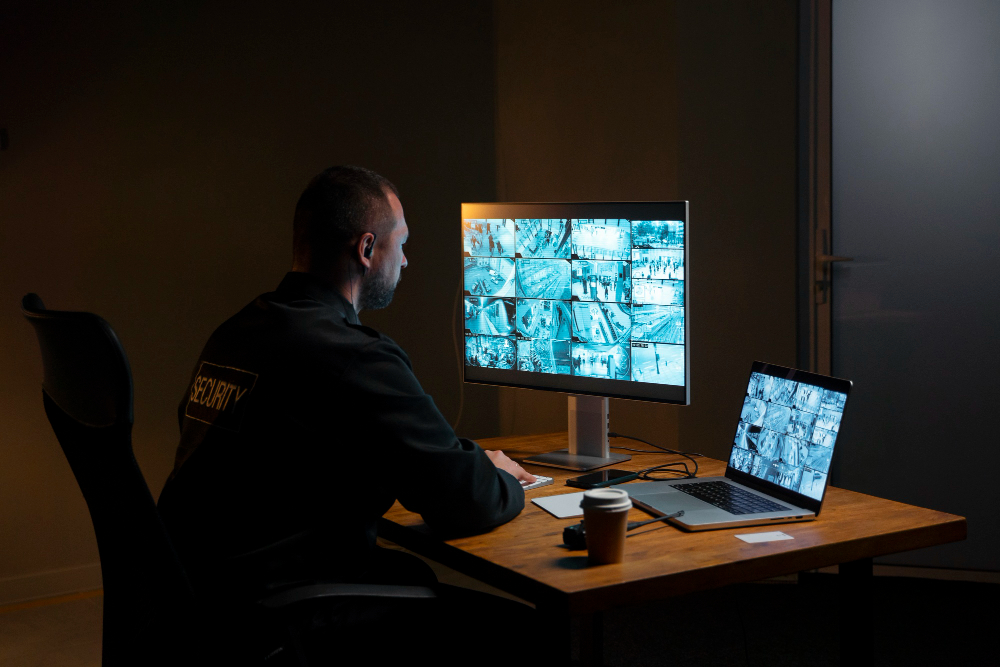
In today’s fast-paced and increasingly digital world, securing a business is not just about locks and guards—it’s about leveraging intelligent technology. AI video surveillance is transforming the landscape of business security by providing smarter, faster, and more proactive protection. Unlike traditional CCTV systems, AI-powered surveillance brings real-time analysis, behavioral recognition, and automated threat detection that can dramatically improve safety, reduce costs, and offer peace of mind to business owners.
The Limitations of Traditional Surveillance Systems
Traditional CCTV systems serve mainly as passive recorders, capturing footage without analyzing it. They depend on security personnel to monitor video feeds constantly, which can lead to missed incidents due to human fatigue or distraction. These systems typically alert staff only after an event has occurred, limiting the chances of preventing threats in real time. Additionally, they lack features like facial recognition, object tracking, or behavior analysis, making them less effective in detecting suspicious activity. Without integration with alarms or access control systems, their functionality remains isolated. Managing large volumes of video data also increases storage costs and complexity.
How AI Video Surveillance Works
AI surveillance systems are equipped with deep learning algorithms that can analyze video footage in real time. These systems can identify patterns, detect anomalies, and recognize faces, license plates, weapons, or even aggressive behaviors. This enables the system to alert security personnel the moment something unusual occurs, rather than waiting for someone to notice it manually.
Some of the key capabilities include:
- Facial recognition for access control and intruder detection.
- Motion detection to track unauthorized movement.
- People counting to monitor foot traffic in commercial spaces.
- Perimeter monitoring to detect breaches in restricted areas.
- Behavior analysis to identify potentially aggressive or suspicious activity.
Benefits of AI Surveillance for Business Security
Businesses today face a range of security threats—physical intrusions, internal theft, vandalism, and even cyber-linked breaches through connected devices. AI surveillance helps mitigate these risks in smarter ways:
- 24/7 Intelligent Monitoring: AI doesn’t get tired, distracted, or need breaks. It constantly watches and analyzes video feeds without human limitations.
- Real-Time Alerts: Get notified instantly when something abnormal happens, improving response time and damage control.
- Reduced Operational Costs: Minimize the need for extensive security staff and long hours of manual footage review.
- Incident Prediction: With predictive analytics, AI can sometimes identify and prevent incidents before they occur by analyzing behaviors and anomalies.
- Enhanced Safety Compliance: Monitor workplace safety protocols, such as mask-wearing or helmet usage, automatically.
Applications Across Industries
AI video surveillance isn’t limited to high-security zones or large enterprises. It’s scalable and adaptable for a wide range of industries:
- Retail: Prevent shoplifting and monitor shopper behavior.
- Warehousing: Ensure product safety and secure entry/exit points.
- Corporate Offices: Enhance employee safety and control access.
- Healthcare: Monitor patient safety and prevent unauthorized entry.
- Hospitality: Ensure a secure environment for guests and staff.
Data Privacy and Legal Considerations
AI-powered surveillance brings efficiency but also demands responsible handling of personal data. Businesses must clearly inform employees and visitors when AI monitoring is in use, especially if facial or behavioral recognition is involved. The data collected should only be used for security and stored securely with encryption and restricted access. Retention periods should be defined to avoid unnecessary data accumulation. It’s also essential to follow relevant data protection laws, such as the GDPR or India’s DPDP Act, to stay compliant and maintain public trust. Transparency, accountability, and ethical use are key to balancing security with privacy.
Future of Business Security with AI
AI is rapidly transforming how businesses approach security. Future systems will not only detect motion but also analyze voice tones, identify aggressive behavior, and predict unusual patterns using multi-sensor inputs. Integration with fire alarms, access controls, and cybersecurity tools will create a unified and intelligent defense system.
Cloud-based platforms will make surveillance more accessible, allowing real-time monitoring from anywhere. As these technologies evolve, businesses will move from reactive safety to predictive security, reducing risks and improving response times. Early adoption of AI ensures smarter, more adaptive protection in an increasingly complex threat landscape.
